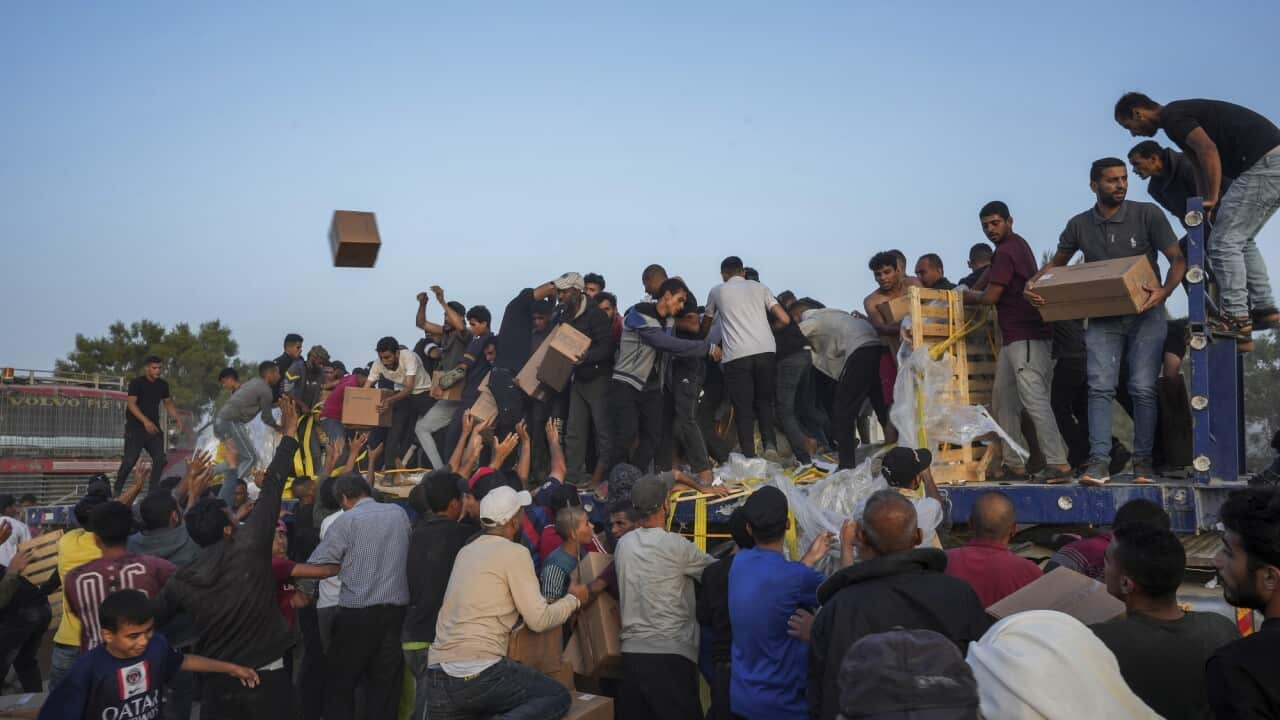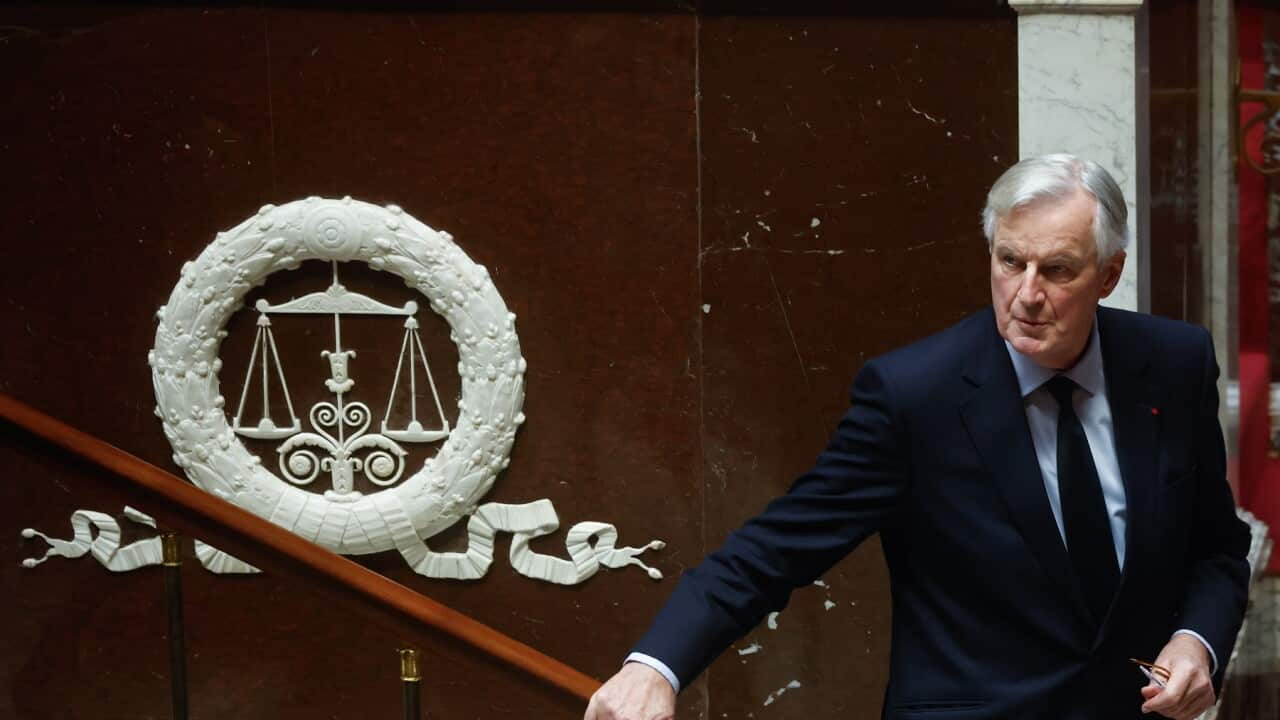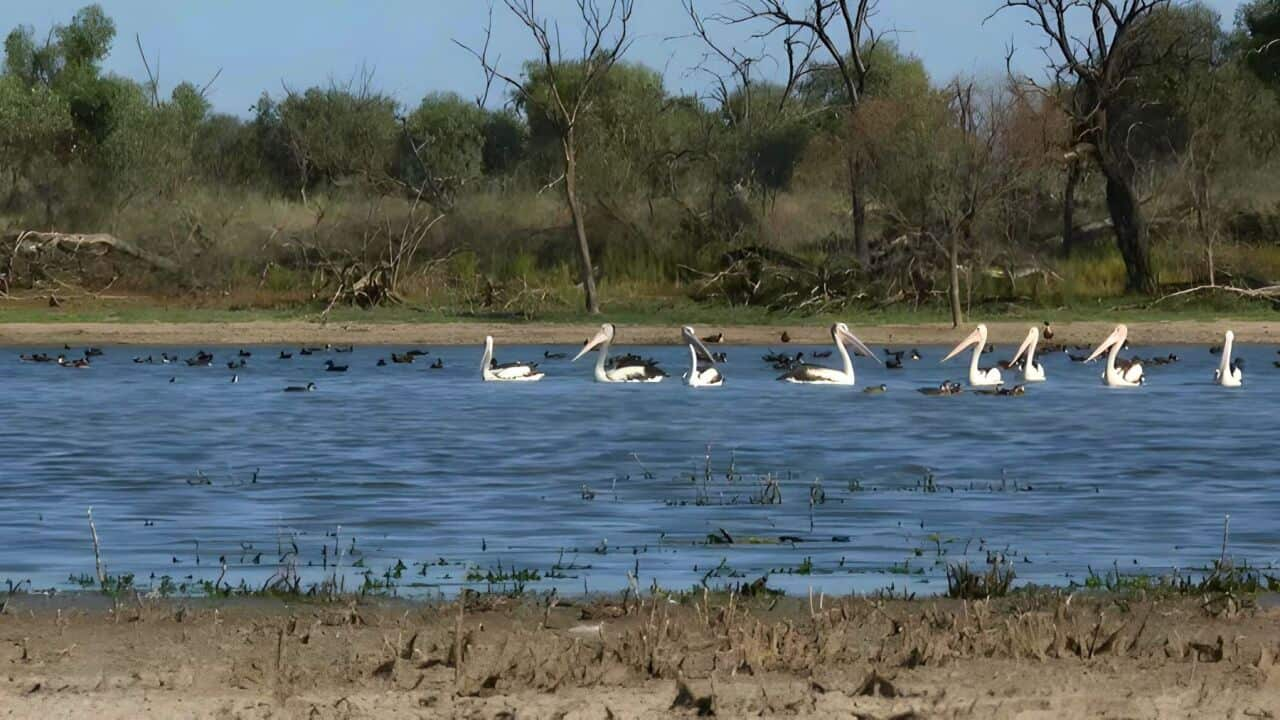TRANSCRIPT
(Sounds of crying)
Another day, another wave of tears for the dead in Gaza.
Mourners weep over the bodies of relatives at a hospital in Deri al-Balah in central Gaza.
They are among the dozens killed after the Israeli military declared it had taken "operational control" over Deir al-Balah and eastern areas of Bureij refugee camp.
The Israel Defense Forces say it launched the air strikes and ground operation to target Hamas militants based on intelligence reports.
The death toll from eight months of fighting in Gaza now stands in excess of 36,500 (36,580), according to Gaza's health authorities.
Mohammed Rayyan says he is grieving the death of a family member killed in the latest airstrikes.
"People were sleeping in their homes - children, massacres. Are those the human rights that the occupation talks about? Children. Is this the humanity that they call for? Innocent children; birds of heaven. This boy was his father's only child. Him and his mother. His mother is here, she was martyred. And here he is, a martyr we consider before God Almighty. We say nothing but thank God."
It comes as the US says it still waiting for a formal response from Hamas to a three-phase proposal to end the war in Gaza, outlined by US President Joe Biden last week.
US, Egyptian and Qatari mediators are meeting in Doha and Cairo to discuss how to finalise the deal.
Israel's prime minister insists he will not agree to a permanent ceasefire before Hamas is defeated - and the hostages it abducted are released.
Meanwhile, tens of thousands of Israelis - mostly from nationalist groups - have taken part in a march on the annual Jerusalem Day, which marks the capture of the east of the city in the 1967 war.
Israel considers East Jerusalem as an integral part of its territory, however the United Nations says under international law it designates East Jerusalem as occupied Palestinian territory.
Given East Jerusalem is often touted as a capital for a future Palestinian state, the march is controversial, and tensions are high.
Israel deployed 3,000 police officers to "avoid any physical or verbal violence", but Israeli and Arab journalists reported being attacked while covering the event.
Australian journalists with the ABC also report being pushed, hit in the face and verbally abused - before police intervened.
Israel's police say five Israeli suspects were detained.
Israeli Prime Minister Benjamin Netanyahu says he views Jerusalem Day as an important occasion - and it strengthens his resolve to eliminate Hamas.
"We convene today in Jerusalem, the unified capital of Israel. Fifty-seven years ago, in the Six Day War, we experienced a historical miracle, we returned home to the Holy City, to the heart of our nation. Then, like today, we were surrounded by enemies. They thought to suffocate us, wipe us off the map, but we are an ancient people, a people of brave warriors, we stood up as one man and defended ourselves. We are doing the same today against Hamas in the south, Hezbollah in the north and Iran in the east."
Gaza is not the only theatre of conflict for Israel right now.
Before the march in Jerusalem, Mr Netanyahu visited the country's northern border with Lebanon.
Israeli towns near the border have recently come under attack from Hezbollah.
United States State Department spokesman Matthew Miller says there is concern about the fighting in Gaza spilling over into a broader regional conflict.
"We have kind of two things. One is this track we've been pursuing all along. But then secondly, one of the reasons we think a ceasefire in Gaza is so important is because that ceasefire would unlock the potential for us to actually achieve lasting calm in the north and is one of the reasons we continue to pursue it."
Meanwhile, UN officials say settler violence in the West Bank continues to claims lives, with more than 500 Palestinians killed by Israeli forces since the October 7 Hamas attack. Nearly a quarter of them have been children.
The spokesperson for the UN Secretary-General, Stephane Dujarric, says the demolition of Palestinian homes in the area also continues.
"Over the past nearly eight months in those areas, Israeli authorities have also demolished, confiscated or forced the demolition of more than 900 Palestinian structures – nearly 40 per cent of which were inhabited homes – that forced the displacement of some 2,000 people."
New data from an independent group of experts suggests starvation has claimed many lives in Gaza.
The Famine Early Warning Systems Network says the war conditions make gathering data on famine challenging.
It says without more aid deliveries, it expects more than 1 million people "to face death and starvation" by mid-July.
Mr Dujarric says it is crucial that aid groups are allowed to carry out their work.
"In the five-day period between 28 May and 1 June, UNRWA says that only 232 trucks of humanitarian aid entered Gaza via Kerem Shalom – a significant reduction compared to before the Rafah military operation."












